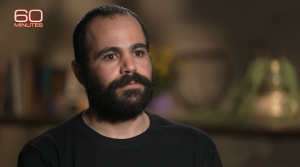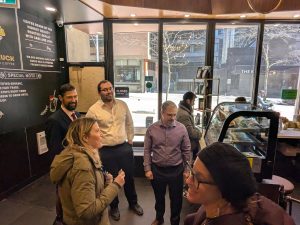Alcoholism and other forms of addiction are just as prevalent among Jews as they are in other communities, and we actively do harm when we pretend we’re immune
Rabbi N. Daniel Korobkin
Beth Avraham Yoseph Congregation, Toronto
Rabbi Lisa Grushcow
Temple Emanu-El-Beth Sholom, Montreal
Rabbi Korobkin: Our shul will soon be hosting a Jewish Addiction Community Services (JACS) Toronto symposium. JACS serves anyone in our community who is suffering from addiction, be it to chemical substances – legal and illegal – gambling, sex, pornography or anything else.
I wish I could tell you that the statistics for Orthodox Jews are different from the rest of the population, but I can’t. Unfortunately, addiction is as prevalent within our community as it is in others. The only thing that makes things worse for the Orthodox Jewish addict is that the addiction is so dissonant from an Orthodox lifestyle and ethic that it is too often ignored or covered up by the addict or the addict’s family.
My hope in hosting this symposium is that by openly discussing the topic, we can open people’s eyes to the symptoms of addiction, and also let addicts know that they aren’t alone and help is available.
Rabbi Grushcow: I agree that alcoholism and other forms of addiction are just as present within the Jewish community as outside it, and that we actively do harm when we pretend that we are immune. Moreover, I would argue that these two realities – the existence of addiction and ignoring addiction – are prevalent across denominations. Torah, strikingly, is not in denial: for example, we see the destructive drunkenness of Noah after the flood and its impact on his family.
I too have been privileged to witness the good work done not only by JACS, but Alcoholics Anonymous (AA). Too often, AA is dismissed within the Jewish community as a Christian movement. But I know many dedicated Jews for whom it has rekindled their spirits and saved their lives. As rabbis, we can help by giving AA our “hechsher,” and encouraging people to get help.
Too often, we aren’t sensitive enough to the needs of those in recovery. I remember a groom who, when we were talking about the cups of wine under the chuppah in preparation for a wedding, asked whether grape juice could be substituted because of his addiction. As a result, now I always specify that either choice is fine.
We have grape juice available at kiddush, and we try to be thoughtful about how programs are developed and described (“Latke and Vodka” and “Torah and Tonics” are alliteratively appealing, but we need to be careful not to exclude). We do need to ask ourselves how much we highlight alcohol in Jewish life.
Rabbi Korobkin: Our first step in helping the addicts in our community is to remind them that they are not alone.
The first of AA’s 12-step program is “we admitted that we were powerless over our addiction and our lives had become unmanageable.” The second step is “we came to believe that a Power greater than ourselves could restore us to sanity.” In a sense, any Jew who approaches God to do tshuvah (repentance) is acknowledging, “I’m addicted to bad behaviour, I want it to stop and I need Your help.” So the first step in breaking the taboo of addiction is to remind the addict that he or she is really no different from anyone else seeking to break free of their vices.
Additionally, defining addiction more broadly may prompt those who view themselves as perfectly healthy to examine if perhaps they’ve become addicts without even realizing it. It could be overeating, an obsession with social media or speaking lashon hara (gossip).
We’re all addicted to something unhealthy. The goal is to use the Torah and recovery techniques to bring us back to health.
Rabbi Grushcow: I want to emphasize the importance of your choice of words – “us,” not “us vs. them.” Addiction is a serious illness, with definable symptoms and treatments, and at the same time, there is a continuum on which all of us have habits we want to change. I think that our tradition’s teachings about idolatry are essential here. What do we organize our lives around? What choices do we make that are destructive? What do we worship in place of what really matters?
The struggle for a healthy body, mind and soul is one all humans share. I have found great wisdom and deep spirituality in those who have made the journey through addiction and into recovery. We have so much to learn from their voices.






